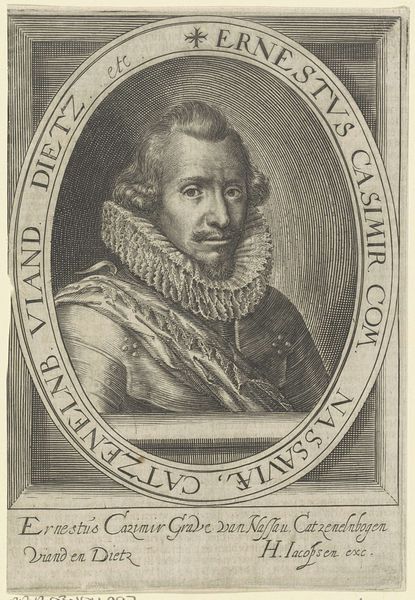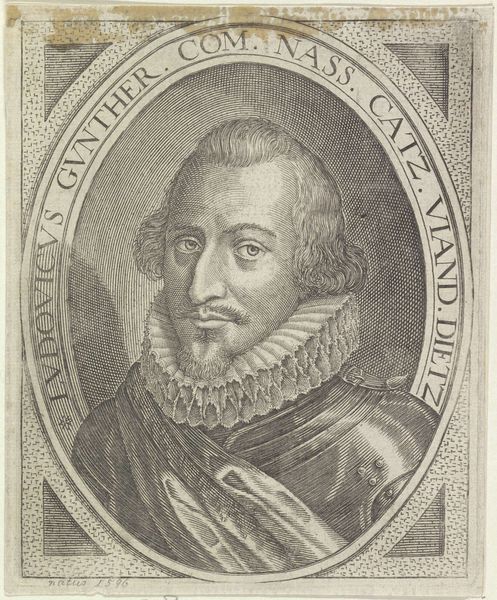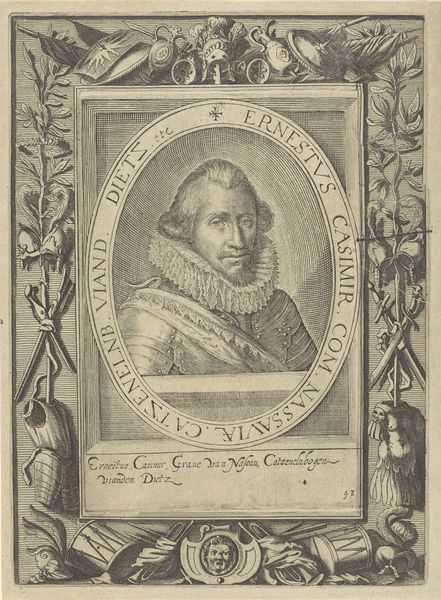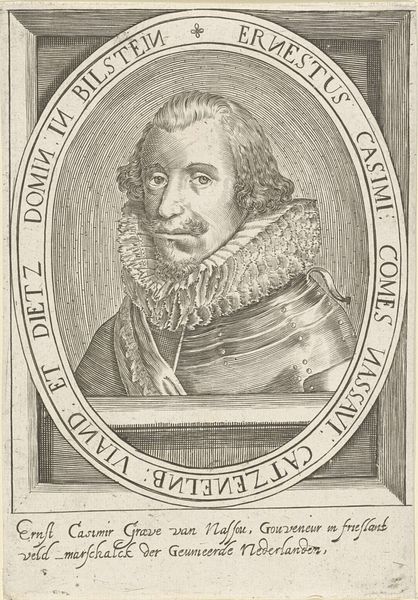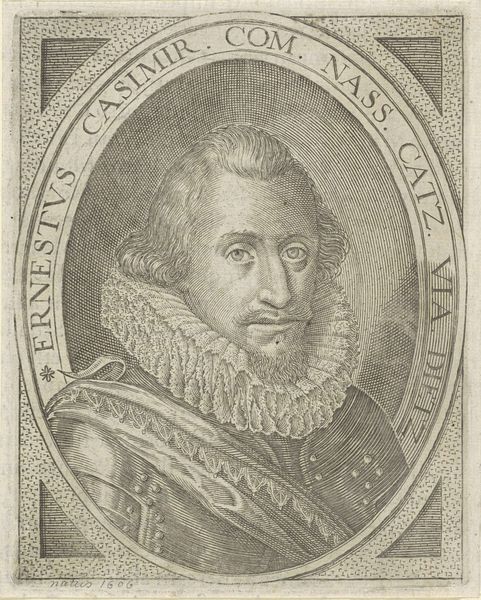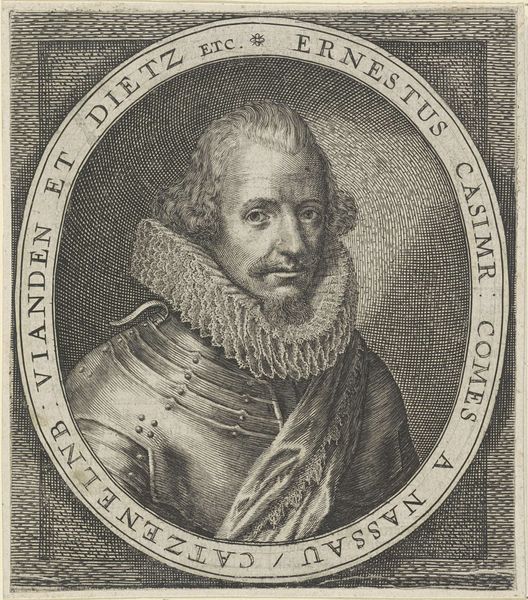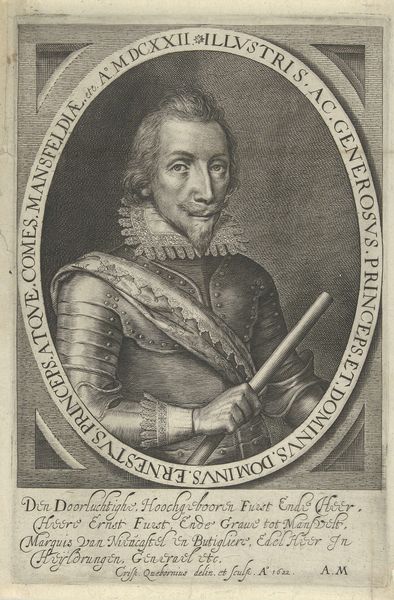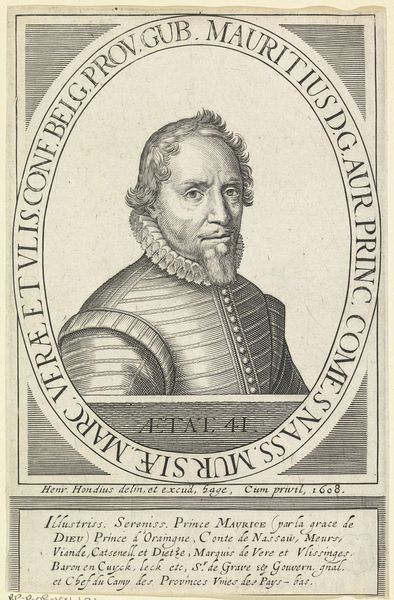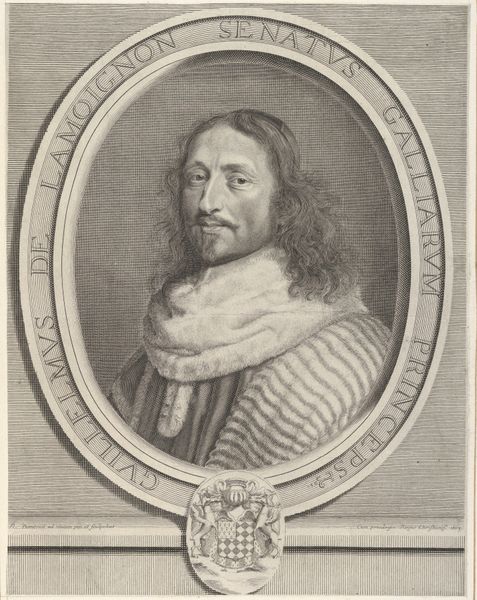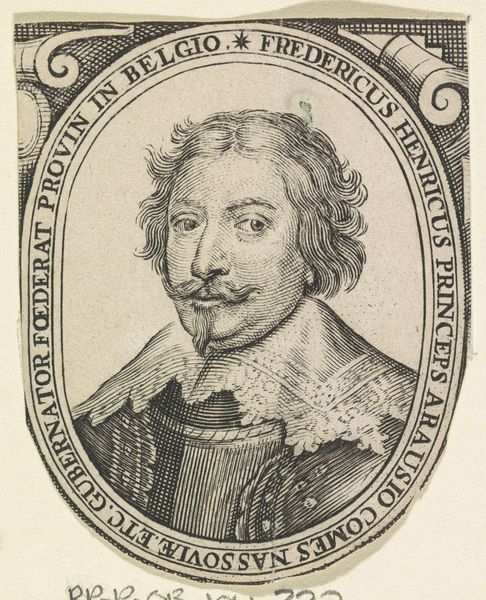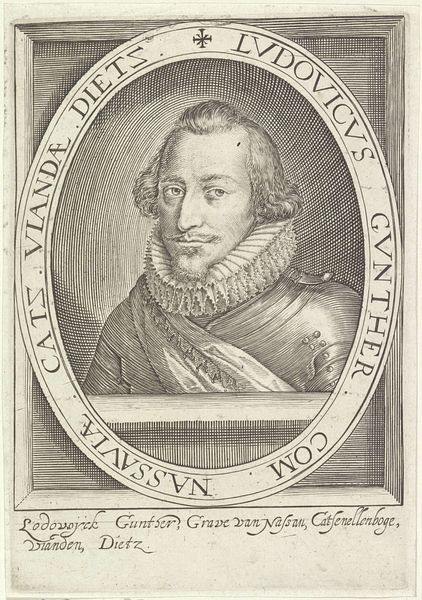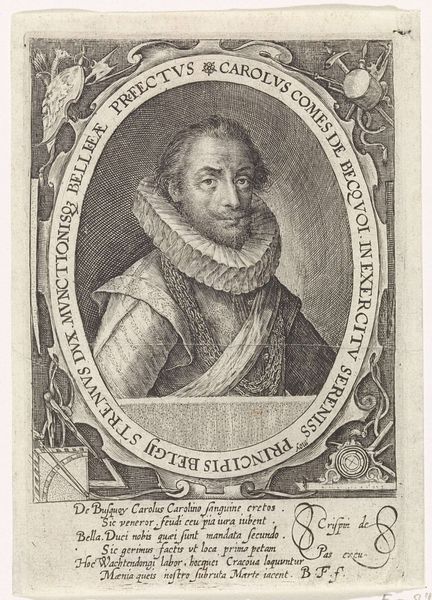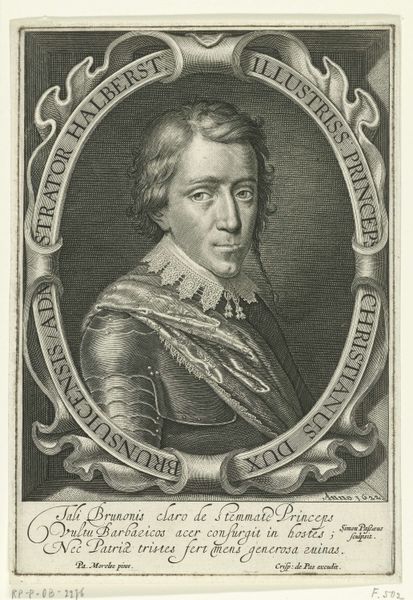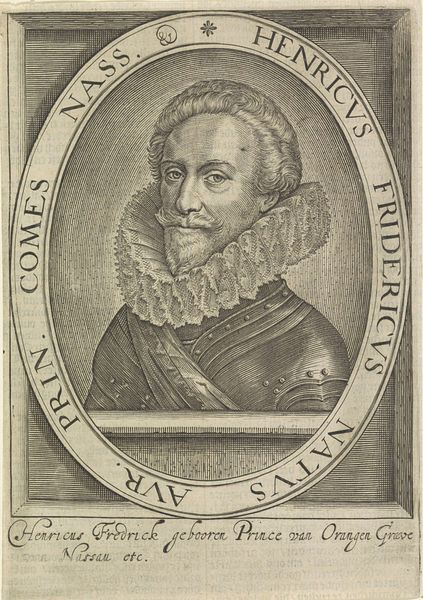
engraving
#
portrait
#
aged paper
#
toned paper
#
baroque
#
old engraving style
#
personal sketchbook
#
portrait reference
#
history-painting
#
engraving
#
columned text
Dimensions: height 190 mm, width 129 mm
Copyright: Rijks Museum: Open Domain
This is an engraving of Ernst Casimir, Count of Nassau-Dietz, created by an anonymous artist. The stark monochrome immediately directs our attention to the count’s stern visage, framed by an elaborate, almost overwhelming ruff. The composition is rigorously structured; the oval border echoes the rigid formality of the text encircling the portrait, creating a visual echo chamber that amplifies the subject's identity and status. The lines are precise, delineating the texture of his clothing and the contours of his face with equal clarity, suggesting an emphasis on detail and verisimilitude. But what does this precision signify? In the context of semiotics, this isn't just a portrait, it's a carefully constructed sign. The Count's armour, the ornate ruff, the very placement of his name in a circumscribing ring – all communicate power and authority. These graphic elements do not just represent; they actively construct and reinforce meaning. The work challenges us to interpret the visual codes of 17th-century portraiture, urging us to consider the broader cultural narratives embedded within its formal constraints.
Comments
No comments
Be the first to comment and join the conversation on the ultimate creative platform.
